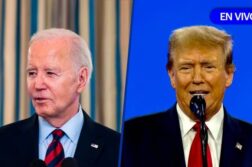By KATHY GANNON
ISLAMABAD (AP) — The long-awaited peace talks between the Taliban and the Afghan government’s negotiating team are to begin on Saturday in the Gulf Arab state of Qatar, the Taliban and Qatar’s foreign ministry said Thursday.

The talks — known as intra-Afghan negotiations — were laid out in a peace deal that Washington brokered with the Taliban and signed in February, also in Qatar, where the Taliban maintain a political office. At the time, the deal was seen as Afghanistan’s best chance at ending more than four decades of relentless war.
Sediq Sediqqi, spokesman for Afghan President Ashraf Ghani, confirmed in a tweet that their delegation will be in Qatar’s capital of Doha for the talks.
U.S. Secretary of State Mike Pompeo issued a statement welcoming the start of negotiations and saying they will mark “a historic opportunity for Afghanistan to bring an end to four decades of war and bloodshed.”
“The people of Afghanistan have carried the burden of war for too long,” Pompeo said.
That deal Washington signed with the Taliban aims to end Afghanistan’s protracted war and bring American troops home while the intra-Afghan talks are to set a road map for a post-war society in Afghanistan.
The negotiations are expected to be a difficult process as the two sides struggle to end the fighting and debate ways of protecting the rights of women and minorities. The fate of the tens of thousands of armed Taliban, as well as militias loyal to government-allied warlords, will also be on the agenda, along with constitutional changes for Afghanistan.
Washington’s peace envoy Zalmay Khalilzad, who negotiated the U.S.-Taliban deal signed on Feb. 29, has been in Doha for the past week, trying to push the talks forward.
The withdrawal of U.S. troops are not dependent on the success of the negotiations but rather on commitments taken by the Taliban under the deal with the U.S. to fight other militant groups, most specifically the Islamic State group, and to ensure that Afghanistan is not used as a staging ground for attacks on the United States or its allies.
Washington and NATO have already begun withdrawing troops and by November America expects to have less than 5,000 troops still in Afghanistan.
Abdullah Abdullah, the head of Afghanistan’s High Council for National Reconciliation, the body that is overseeing the negotiations on behalf of the government, will attend the opening of the talks but the day-to-day negotiations will be carried out by a team headed by Mohammed Masoom Stanikzai, a former intelligence chief.
The Taliban’s 21-member negotiation team is headed by their chief justice Abdul Hakim and includes 13 members of the insurgent’s leadership council.
The start of negotiations had been plagued by delays as the two sides squabbled for months over the release of prisoners until the exchange was complete earlier this month — 5,000 Taliban freed by the Afghan government and 1,000 government and military personnel who were released by the Taliban. The prisoner release was also set in the U.S.-Taliban deal as a prerequisite for the start of the intra-Afghan negotiations.
However, the negotiations will begin under difficult circumstances, marred by stepped up attacks on Afghan forces by the Taliban, target killings and attempted assassinations. Scores of civilians have died in the crossfire. There have also been attacks on released Taliban prisoners returning to their homes and accusations by the insurgents of being attacked inside their homes with their families.
Pompeo in his statement warned both sides against squandering this opportunity to hammer out a negotiated end to the fighting.
“This opportunity must not be squandered,” Pompeo said. “Immense sacrifice and investment by the United States, our partners, and the people of Afghanistan have made this moment of hope possible. I urge the negotiators to demonstrate the pragmatism, restraint, and flexibility this process will require to succeed. The people of Afghanistan and the international community will be watching closely.”
___
Associated Press writers Matthew Lee in Washington and Tameem Akhgar in Kabul, Afghanistan, contributed to this report





